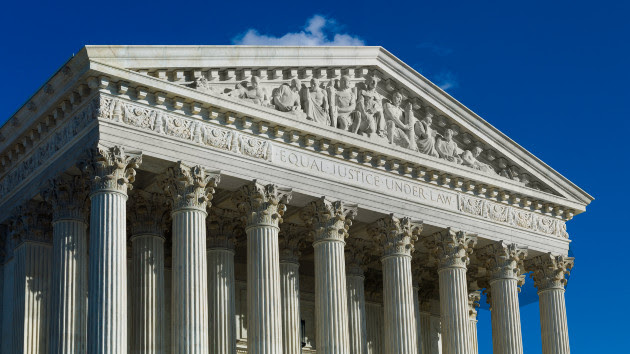(WASHINGTON) — The Supreme Court on Thursday set new limits on affirmative action programs in cases involving whether public and private colleges and universities can continue to use race as one factor among many in student admissions.
The court held, in a 6-3 opinion written by Chief Justice John Roberts, that Harvard and UNC’s admissions programs violate the equal protection clause of the 14th Amendment.
Justices Sonia Sotomayor, Elena Kagan and Ketanji Brown Jackson dissented.
The blockbuster cases put affirmative action, which has been used for decades by colleges and universities to address inequality and diversify their campuses, in the spotlight. The Supreme Court had repeatedly ruled since 1978 schools may consider the race of applicants in pursuing educational benefits from a diverse student body, so long as they did not use a quota system.
Students for Fair Admissions, a conservative group, sued Harvard University and the University of North Carolina over their race-conscious admissions programs, alleging intentional discrimination toward Asian American applicants.The Supreme Court ruled in favor of the group in a decision that will have major ramifications for the college admissions process in the U.S.
“Both programs lack sufficiently focused and measurable objectives warranting the use of race, unavoidably employ race in a negative manner, involve racial stereotyping, and lack meaningful end points,” Roberts wrote. “We have never permitted admissions programs to work in that way, and we will not do so today.”
“At the same time, as all parties agree, nothing in this opinion should be construed as prohibiting universities from considering an applicant’s discussion of how race affected his or her life, be it through discrimination, inspiration, or otherwise,” Roberts continued.
The court said that it has “permitted race-based admissions only within the confines of narrow restrictions. University programs must comply with strict scrutiny, they may never use race as a stereotype or negative, and — at some point — they must end.”
Justice Sotomayor, in her dissent, said the court’s decision “rolls back decades of precedent and momentous progress.”
“It holds that race can no longer be used in a limited way in college admissions to achieve such critical benefits,” she wrote. “In so holding, the court cements a superficial rule of colorblindness as a constitutional principle in an endemically segregated society where race has always mattered and continues to matter.”
Copyright © 2023, ABC Audio. All rights reserved.












